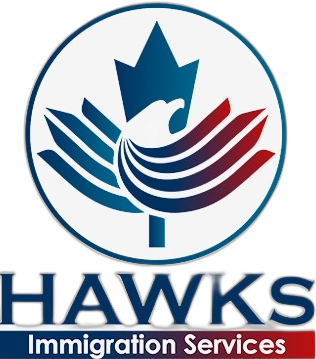
Visitor Visa
A Canada Visitor Visa, also known as a Temporary Resident Visa (TRV), is an official document that allows foreign nationals to enter Canada for temporary purposes, such as tourism, visiting family or friends, or attending business meetings. This visa is essential for individuals who are not Canadian citizens or permanent residents and wish to explore or experience Canada for a limited duration.

How It Works:
- Application: To obtain a Canada Visitor Visa, you must apply for one through the official channels. The application process may vary depending on your country of residence, but it generally involves filling out the appropriate forms and providing required documentation.
- Eligibility: Ensure you meet the eligibility criteria for a Visitor Visa, which may include demonstrating your intent to return to your home country at the end of your visit, proving you have sufficient funds to support your stay, and passing a medical examination, if necessary.
- Processing Time: Visitor Visa processing times can vary, so it’s advisable to apply well in advance of your intended travel date. Some visas can be processed in a matter of weeks, while others may take several months.
- Duration: If approved, a Canada Visitor Visa typically allows you to stay in Canada for up to six months. It’s important to adhere to the specified duration, as overstaying your visa can lead to future travel restrictions.
- Travel Purposes: Visitor Visas are versatile and can be used for various purposes, including tourism, family visits, business trips, and attending special events or conferences in Canada.
- Compliance: While in Canada, it’s essential to comply with the terms of your Visitor Visa, which may include restrictions on employment, education, or public health measures, as well as following Canadian laws and regulations.
A Canada Visitor Visa opens doors to explore the stunning landscapes, vibrant cities, and diverse culture of Canada. It also allows you to connect with loved ones and engage in business opportunities in this welcoming nation. Understanding the Visitor Visa process is the first step to experiencing the beauty and hospitality that Canada has to offer.
Super Visa
A super visa is a type of visa that allows parents and grandparents of Canadian citizens or permanent residents to visit and stay in Canada for an extended period. It is a multi-entry visa that is valid for up to 10 years, and it allows for visits of up to five years at a time without needing to renew the visa. This contrasts with a standard visitor visa, which typically allows for stays of up to six months.

Here’s how the super visa works:
- Eligibility: To be eligible for a super visa, you must be the parent or grandparent of a Canadian citizen or permanent resident. You must also meet other eligibility criteria, including providing a letter of invitation from your child or grandchild in Canada, demonstrating that you have sufficient ties to your home country, undergoing a medical examination, and purchasing private Canadian health insurance for at least one year.
- Application: You will need to apply for a super visa at a Canadian visa office in your home country. The application process includes submitting the required documents and paying the necessary fees. The processing time for super visa applications can vary depending on the country and the volume of applications.
- Approval: If your super visa application is approved, you will receive a letter of introduction from the Canadian government, which you will need to present to immigration officials when you arrive in Canada. You may also be required to undergo a medical examination and provide biometrics.
- Entry and Stay: With a super visa, you can enter Canada as a visitor and stay for up to five years at a time. This is different from a standard visitor visa, which typically allows for a stay of up to six months. You can leave and re-enter Canada during the validity of the super visa as long as it remains valid.
- Insurance: One of the key requirements for a super visa is that you must have private Canadian health insurance coverage for at least one year. This insurance is essential to cover any medical expenses you may incur while in Canada, as you will not be eligible for the Canadian public health care system.
- Extension: If you wish to extend your stay in Canada beyond the initial two-year period, you can apply for an extension of your super visa. However, there is no guarantee that an extension will be granted, and you must apply before your status expires.
It’s important to note that the super visa is intended for temporary visits and does not grant permanent resident status in Canada. It is designed to allow parents and grandparents to spend an extended period with their Canadian family members while maintaining their ties to their home country.
Study Permit
A study permit is a document issued by the Canadian government that allows international students to study in Canada at designated learning institutions. Here’s how it works:

- Admission to a Designated Learning Institution (DLI): Before applying for a study permit, you must first be accepted by a Canadian DLI. Make sure to obtain a formal acceptance letter, as you’ll need it for your application.
- Study Permit Application: Once you have your acceptance letter, you can apply for a study permit. This application typically involves providing proof of sufficient funds to cover tuition and living expenses, a clean criminal record, and a medical exam in some cases.
- Biometrics: Depending on your country of origin, you may need to provide biometrics (fingerprints and a photo) at a local Canadian consulate or embassy.
- Approval and Issuance: If your application is approved, you’ll receive a study permit. This document outlines the conditions of your stay, such as the duration of your studies, the institution you’ll attend, and whether you’re allowed to work during your studies.
- Compliance with Permit Conditions: It’s essential to adhere to the conditions of your study permit while in Canada. This includes maintaining full-time student status, keeping a valid passport, and obeying Canadian laws.
- Renewal and Extensions: If your program of study extends beyond the original permit’s validity, you can apply for an extension. Ensure you do this well in advance of the permit’s expiration to avoid any interruptions in your studies.
- Post-Graduation Opportunities: After completing your studies, you may be eligible for a post-graduation work permit, which allows you to gain valuable Canadian work experience.
A study permit is your gateway to world-class education in Canada. It offers the opportunity to learn in a diverse and welcoming environment while gaining valuable experiences. Start your Canadian educational journey with a study permit today!
Work Permit
A Canada Work Permit is an official document issued by the Government of Canada that allows foreign nationals to work legally within the country for a specified period. This permit is an essential requirement for individuals who are not Canadian citizens or permanent residents but wish to work in Canada.

How It Works:
- Job Offer: To obtain a Canada Work Permit, you typically need a job offer from a Canadian employer. The employer may need to get a Labor Market Impact Assessment (LMIA) to demonstrate that there are no qualified Canadians available for the position.
- Work Permit Application: Once you have a job offer, you can apply for a work permit. The application process may vary depending on your country of residence and the type of work permit you are applying for.
- Eligibility: Ensure you meet the eligibility criteria, which can include health and security checks. You may also need to provide supporting documents like a valid passport, proof of financial support, and a letter of invitation from your employer.
- Processing Time: Work permit processing times can vary, so it’s essential to apply well in advance of your intended start date. Some work permits can be processed in a matter of weeks, while others may take several months.
- Duration: Work permits in Canada are typically granted for a specific period, often in line with the job contract’s duration. You can apply for an extension if needed.
- Compliance: Once in Canada, it is crucial to comply with the conditions of your work permit. These conditions may include the type of work you can do, the location of employment, and more.
- Temporary vs. Permanent: It’s important to note that a work permit allows temporary employment in Canada, whereas permanent residency is a separate process. Depending on your circumstances and goals, you may wish to explore pathways to permanent residency.
Canada is known for its diverse and inclusive work environment, and a Canada Work Permit opens the door to a wealth of opportunities in this beautiful and culturally rich nation. Whether you’re seeking temporary employment, career growth, or a new life in Canada, understanding the work permit process is the first step towards realizing your aspirations.

